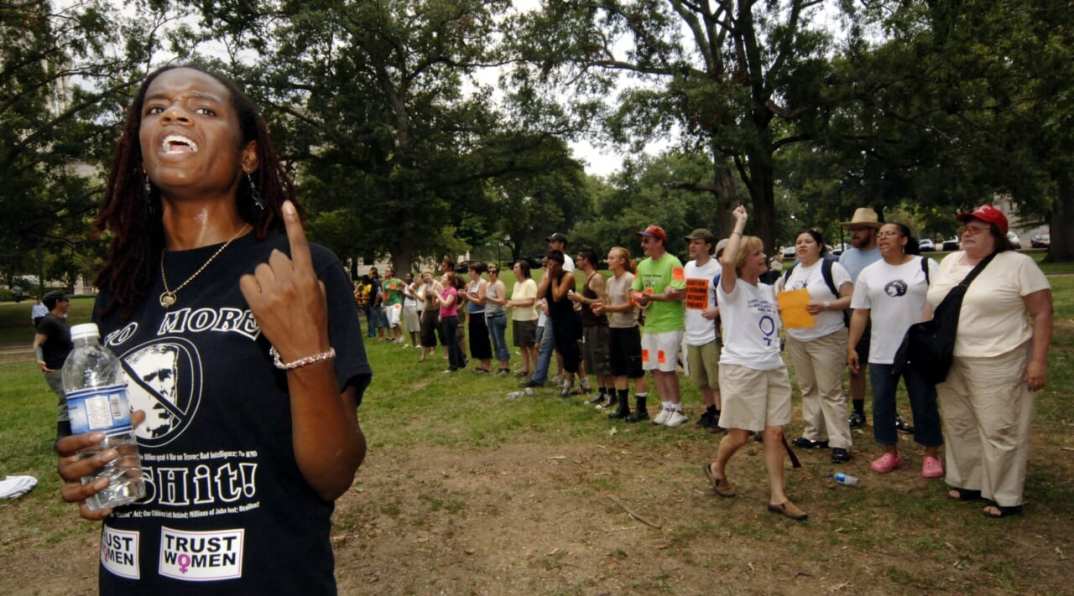How new Mississippi abortion law will harm Black women

Mississippi Gov. Phil Bryant passed into law an abortion ban – at 15 weeks – which is now the strictest limit in the nation that fails to outline provisions that would exempt rape or incest victims, drawing outrage across the state, according to BuzzFeed.
The bill, called “The Gestational Age Act,” has now tightened already very limited access to abortion services. The state has only one clinic left that provides services. Already it also stands as one of 17 states that bans abortion at 20 weeks—and now it has lowered that to 15 weeks.
–Kim Kardashian pimps Black culture and fails Black women with new beauty line–
“We are protecting more women, we are protecting more children,” Mississippi House Judiciary Committee Chair Andy Gipson told CBS News. “By 15 weeks, you have a child in the womb who has a heartbeat, who for all practical purposes has taken on the form of a person.”
—FBI: Bomb explosion at Texas Fedex plant could be linked to Austin attacks–
With the 15 week ban, Mississippi is even going against the ruling of Roe vs. Wade. In that case, the Supreme Court ruled that a state cannot impose an undue burden on a woman’s ability to have an abortion until the fetus would be able to survive outside the womb. Doctors set viability at about 22-24 weeks. Reproductive rights advocates have argued that the 20-week ban is unconstitutional.
Women who seek abortions after 16 weeks are significantly more likely to be under age 18, black, unemployed and poor, according to a 2010 study from the Human Family Research Center.
–Black residents in Austin on high alert after fourth bombing injuries two men–
According to Jacqueline Ayers, the National Director, Legislative Affairs for Planned Parenthood Federation of America, Mississippi has the highest women’s poverty ratein the nation and due to systemic racism and discriminatory policy, more than one in three Black people in the state live below the poverty line. Many Black women in Mississippi don’t have access to private health insurance that covers comprehensive reproductive health care and the state does not provide Medicaid funding for abortions.
Ayers wrote an op-ed on the ban for The Grio:
For women without the financial resources or work flexibility, House Bill 1510 is really a de facto ban on abortion altogether. And that’s the bill sponsors’ strategy. One law at a time, ideologues in the Mississippi legislature and those of state politicians across the country are pushing for a broader agenda to ultimately end a woman’s ability to choose what’s best for HER life and HER family. In fact, politicians at the state level have quietly passed more than 400 restrictions on abortion since 2011.
Everyone has the right to decide whether, how, and when to become a parent. The courts have already confirmed this many times over that similar abortion bans are unconstitutional. Jackson Women’s Health Organization, the state’s sole abortion provider, isn’t standing by silently while lawmakers make decisions for women about their pregnancies and their families; in fact, the organization has already announced plans to challenge this bill in court.
Instead of blocking women from accessing their right to an abortion, we should be honoring their right to bodily autonomy. That includes investing in comprehensive sex education and expanding access to reproductive health care services to provide women with the tools they need to have healthy pregnancies and prevent unintended ones.
The decision about whether to parent, to end a pregnancy, or to choose adoption is a deeply personal one—best left to the individual, not to politicians.
Organizations like the Center for Reproductive Rights and the American Civil Liberties Union are gearing up to fight and challenge the ban.
“It will end up at the center of a legal battle, wasting tens of thousands of taxpayer dollars in legal fees,” the ACLU of Mississippi said in a statement.
The Center for Reproductive Rights plans to sue Mississippi now that the bill has been signed into law.
